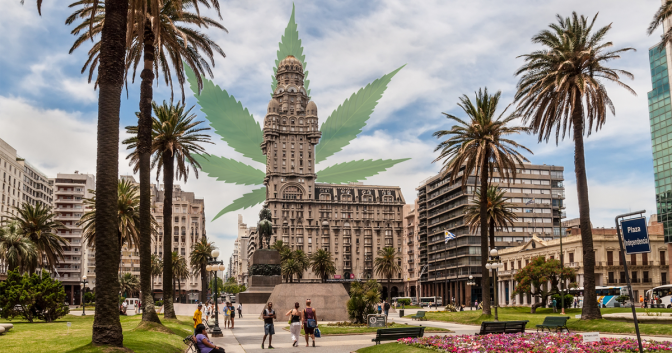Legal Cannabis Sales Underway in Uruguay

It’s official: As of July 1, marijuana became available for purchase in Uruguay pharmacies. The South American country made international headlines in 2012 when then-president José Mujica announced plans to legalize cannabis. The following year, Uruguay became the first nation in the world to fully legalize the adult-use of marijuana when lawmakers gave final approval to the bill.
Since then, the pot pioneer has struggled to implement the measure. Adults are allowed to grow up to six cannabis plants at home and can join cannabis co-ops that can grow up to 99 plants a year. But cannabis sales in pharmacies were originally set to begin by the end of 2014.
At the time, Mujica told the AFP that sales of the drug would be delayed. “If we want to get this right we are going to have to do it slowly,” he said, explaining that legal weed could end up in the black market if the government rushed to implement the law. Mujica’s successor Tabaré Vázquez delayed cannabis sales even further when he took office in 2015.
But soon, Uruguayans will finally be able to buy government-produced cannabis from pharmacies. In a bid to keep prices low, the marijuana market will be a government monopoly. At about $1.30 a gram, it costs “less than half the price on the black market,” one consumer told the AFP.
But don’t expect Uruguay’s capital, Montevideo, to become the next Amsterdam. Only citizens and those with permanent residency permits are allowed to buy cannabis over the counter. Users must register with the government and are restricted to just 10 grams per week.
“It’s like a police file they’re building of planters and consumers,” a Uruguayan cannabis activist told The Guardian. “Why should there be a registry of marijuana consumers and not one of alcohol consumers?”
The country has also taken a stand on the international stage. Facing pressure from the United Nations’ Office on Drugs and Crime, Uruguay has stood fast in its view that drug use should be treated as a public health issue rather than a criminal issue.
In fact, the country is in open violation of international drug treaties. But so far, no one has taken any sort of action against Uruguay for due to its legalization stance. Canada may soon join Uruguay, though it’s unclear how the Trudeau government plans to deal with the conflict with international law.
If you enjoyed this Freedom Leaf article, subscribe to the magazine today!

